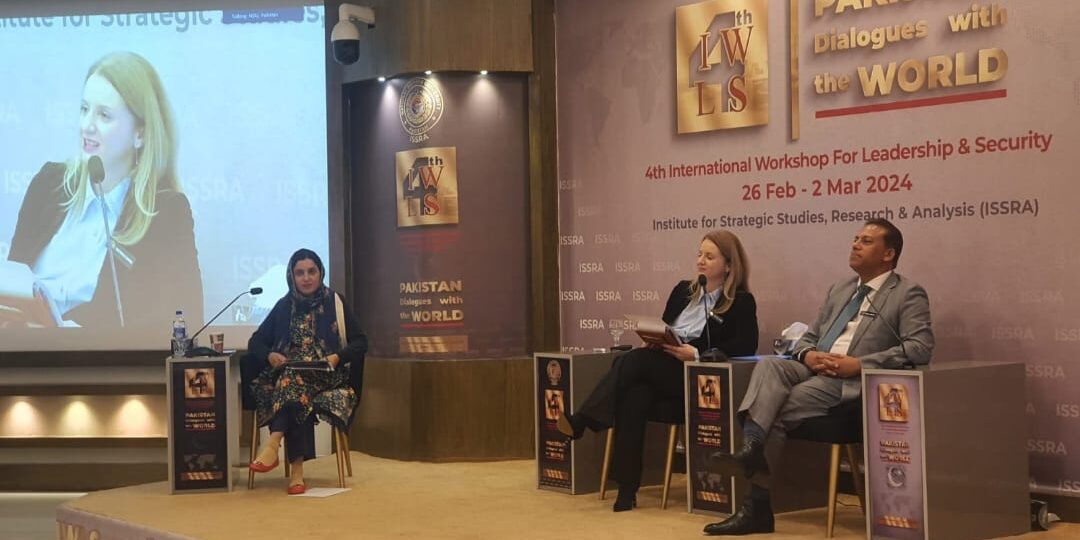In the capacity as the IIHS Women, Peace, and Security Advisor, I participated in the 4th International Workshop for Leadership and Security, which took place at the Institute for Strategic Studies, Research, and Analysis (ISSRA), National Defence University (NDU), Islamabad, Pakistan during 26 February – 2 March 2024. The international event aimed to provide a platform for shared understanding and perspective of the evolving regional and global strategic environment and Pakistan’s role and strategic approach in this background.
Throughout the week, leaders and high officials from various fields of activities, such as defense, security, international affairs, diplomacy, academia, journalism, and business sector, from all over the world had the opportunity to interact and discuss the following topics: Evolving Global & Regional Order; Global Trends: Human Rights, Climate Change, Terrorism and Islamophobia; Culture & Heritage of Pakistan; Regional Cooperation and Stability – Opportunities and Challenges; Investment and Entrepreneurship – Opportunities in Pakistan; Talk – Economy of Pakistan: Opportunities & Challenges; Art & Science of Narrative shaping in the Post Truth Era; Looking into the Future – Tech & Society; Talk – Strategic Leadership & Statesmanship.
In this context of an open international discussion of Pakistan with the world, it was essential to enfaces the recent Pakistan National and Security Policy for four years, until 2026, where the area of human security has a dedicated chapter and comprises opportunities and challenges with regards to the Population Growth and Migration, Health Security, Climate and Water Stress, Food Security, Gender Security, and also policy Guidelines for all these areas.
Gender Security is a critical topic because women comprise half of Pakistan’s population, and in this, it is essential to adopt a gendered lens to achieving peace and security. So, action will be taken to establish a policy objective for promoting the women, peace, and security agenda and to ensure integration of gender equity into national security narratives through full and meaningful participation of women in decision-making, law, enforcement, justice sector, and peacekeeping, to enable free and secure involvement of women in all fields of public life. Also, another fundamental objective is to include women in decision-making forums, policy formulation, and institutions working on pace, protection, and security.
This important topic of Human Security was tackled by creating a Syndicate, which Ms. Gianina Dimitrescu, IIHS Pace and Security Advisor, coordinated. In this forum for discussion, the attendees, members from different countries and different fields of activities, had the opportunity to debate on human rights, cyber security, and climate change as challenges to the sovereignty of a modern state. They concluded by answering that the country will remain the same if the universal concepts of human rights, cyber security, and climate change are applied by the same standards. The only danger which arises in this situation is the double standard. Sovereignty must be applied equally to all powers because it is a universal human right.
From the mission of IIHS, it is essential to approach the concept of Gender Security in the frame of Human Security, embracing different regional and national ways of implementation to share best practices worldwide. Attending the working sessions of this international seminar, we created bridges for a better understanding and took action in all areas of human security.
Gianina Dimitrescu serves as IIHS UN ECOSOC Advisor on Women, Peace and Security







